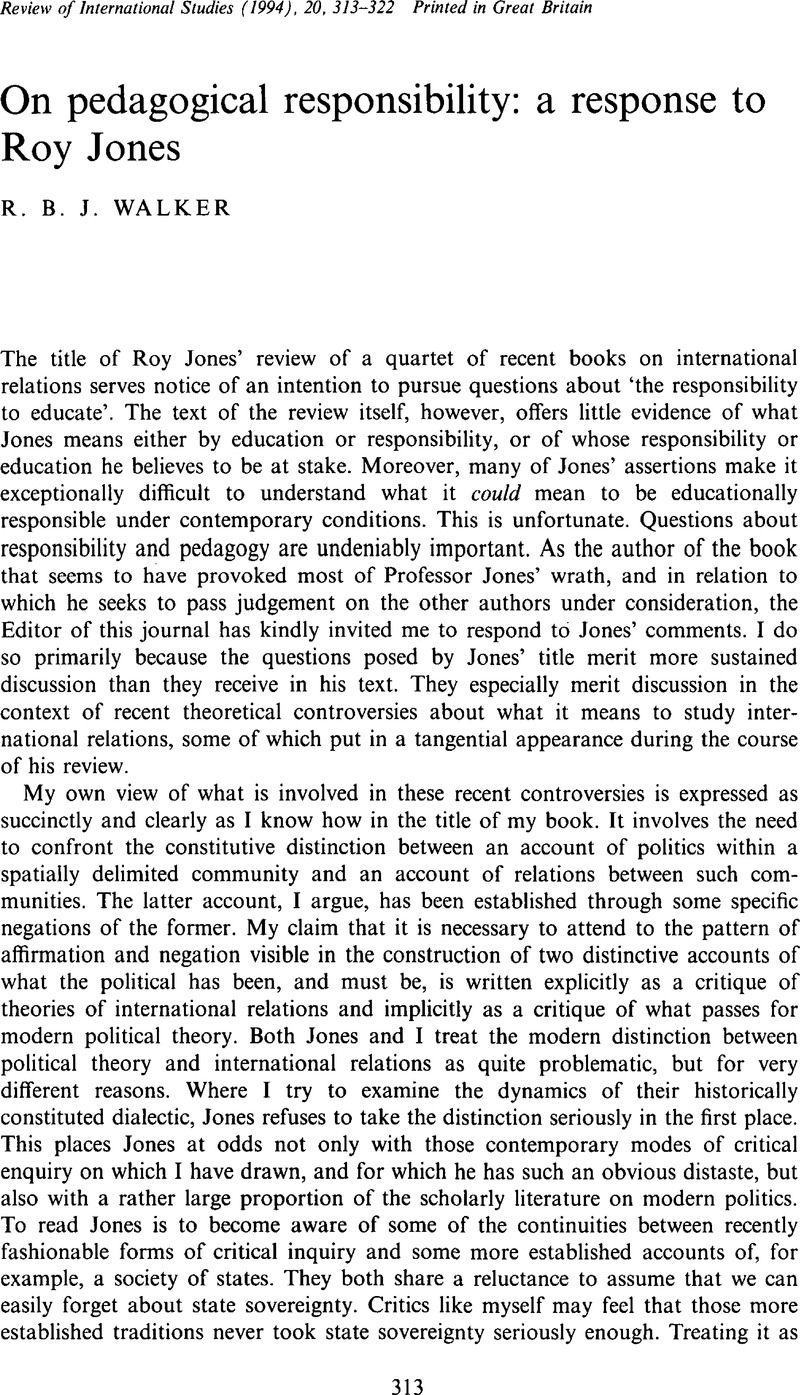Article contents
On pedagogical responsibility: a response to Roy Jones
Published online by Cambridge University Press: 26 October 2009
Abstract

- Type
- Response
- Information
- Copyright
- Copyright © British International Studies Association 1994
References
1 Held, David (ed.) Prospects for Democracy: North, South, East, West (Cambridge, 1993)Google Scholar.
2 For an excellent analysis of the peculiarities of epistemological discussion in this discipline, see George, Jim, Discourses of Global Politics: A Critical (Re) Introduction to International Relations (Boulder, CO, 1994).CrossRefGoogle Scholar
3 Linklater, Andrew, Men and Citizens in the Theory of International Relations, 2nd edn (London, 1990)CrossRefGoogle Scholar.
4 I have developed this theme further in ‘Violence, Modernity, Silence: From Max Weber to International Relations’, in Campbell, David and Dillon, Michael (eds.), The Political Subject of Violence (Manchester, 1993), pp. 137–60Google Scholar.
5 Jones, Roy, ‘The English School of International Relations: A case for Closure’, Review of International Studies, 7, (1981), pp. 1–13CrossRefGoogle Scholar; Jones, , ‘The Myth of the Special Case in International Relations’, Review of International Studies, 14, (1989), pp. 267–74CrossRefGoogle Scholar.
6 Jones, ‘The Myth of the Special Case’, p. 274.
7 Walker, R. B. J., ‘Pedagogies on the Edge: World Politics Without “International Relations”’, in Gonick, Lev S. and Weisband, Edward (eds.), Teaching World Politics: Contending Pedagogies for a New World Order (Boulder, CO, 1991), pp. 171–86Google Scholar.
- 2
- Cited by




